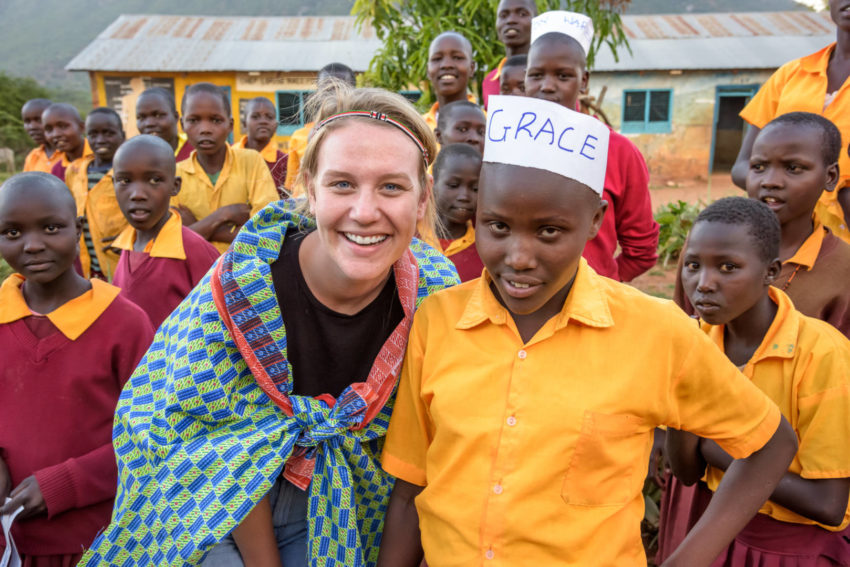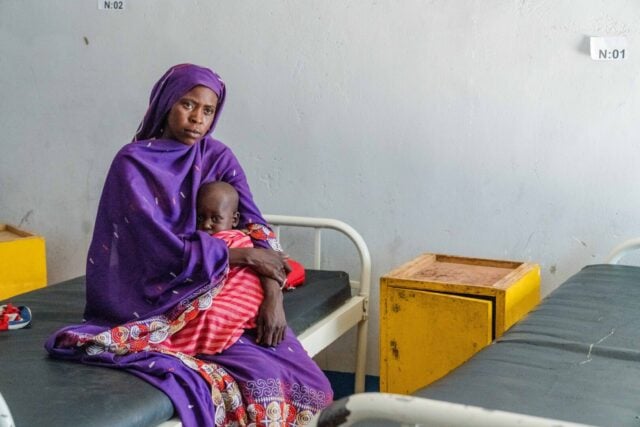If tragedy struck, what support network would you have to fall back on? What would you do if that network failed?
This World Teachers Day, find out how a school in Kenya serves as a safety net for vulnerable girls and more about their faith in who will catch them if they fall.
* * *
The text message came through 24 hours after I’d returned home from Kenya:
There’s been a fire in our apartment. You need to come home.
Still jetlagged and a little disoriented, I raced home from a hectic first day back in the office.
When I arrived outside my Brooklyn apartment building, it became clear that the situation was more serious than I’d anticipated — two fire trucks and a news crew obstructed my view of the front door, and volunteers from the Red Cross handed out masks to the tenants who would be led back inside to retrieve valuables from their now uninhabitable homes.
I was one of them.
My roommates and I were given just 30 minutes to grab everything that had survived before we were required to permanently evacuate the building.
Three days prior, I’d been in West Pokot County, Kenya, visiting St. Elizabeth’s secondary school for girls. The school itself was beautiful — nestled between two mountains and surrounded by lush greenery. Stunning natural beauty aside, St. Elizabeth’s appeared to be like any other boarding school, save for one detail: 30 students attend on scholarship, having run away from their families to escape child marriage and female genital mutilation (FGM), also known as cutting.
When our group arrived on campus, our cars were engulfed by a crowd. Students and faculty flooded the driveway, singing, clapping, and dancing to welcome us.
After attempting to join in the dancing — and thoroughly embarrassing ourselves — our group sat down to dinner with the school’s brilliant headmistress, Miss Caroline.
For teenage girls with limited options, Miss Caroline acted as a parent, a mentor, and an advocate, carving paths for talented young women whose trust had been betrayed by those meant to protect them. For girls suddenly without a home, St. Elizabeth’s has become a rare and revolutionary safety net.
Back to the blaze in Brooklyn. In the days that followed the fire, I surprised everyone — myself included — by remaining uncharacteristically positive.
I say uncharacteristically because, as awful as it may sound, this is just the type of scenario I would typically leverage to win the sympathies of friends and family. C’mon, who wouldn’t?
But when people asked me what had happened, I found myself miraculously unable to pout or dramatize. In response to sympathetic inquiries, I typically wrapped up an abbreviated version of the story with a dismissive, “It’s all okay.”
Because it is. It’s all okay.
While I may not have had renter’s insurance to cover the cost of my lost belongings (stop what you’re doing and renew your policy!), I had a network of friends that were willing to take me in, a family who would do anything in their power to help, and an employer that granted me the flexibility to run in and out of the office when needs arose without putting my job at risk.
I live in a city brimming with grocery stores and hotels and taxi cabs, surrounded by public servants whose job it is to keep me safe.
I had a safety net. A triple-decker safety net. With a trampoline underneath.
For the girls at St. Elizabeth’s, things aren’t quite as simple.
After graduation, most have no choice but to return to the very communities from which they escaped — often places where women spend six hours a day fetching water and struggling to survive between droughts.
There’s no safety net in place for them once they leave St. Elizabeth’s, save for what organizations like World Vision aim to create by working with the community to tackle the root causes of poverty.
But not once during our visit did the student’s welcoming smiles betray an ounce of bitterness or martyrdom.
“God is good all the time,” they chant. “All the time, God is good.”
In a place without safety nets, these girls know who will catch them if they fall.
Grace Stearns, the daughter of World Vision U.S. President Rich Stearns, has traveled with World Vision to 10 countries and sponsors children in Nicaragua, Kenya, and Congo. She lives in Brooklyn, New York, and works in marketing.
Join World Vision in building a better safety net to help protect vulnerable girls. Sponsor a girl in Kenya today!





Comments